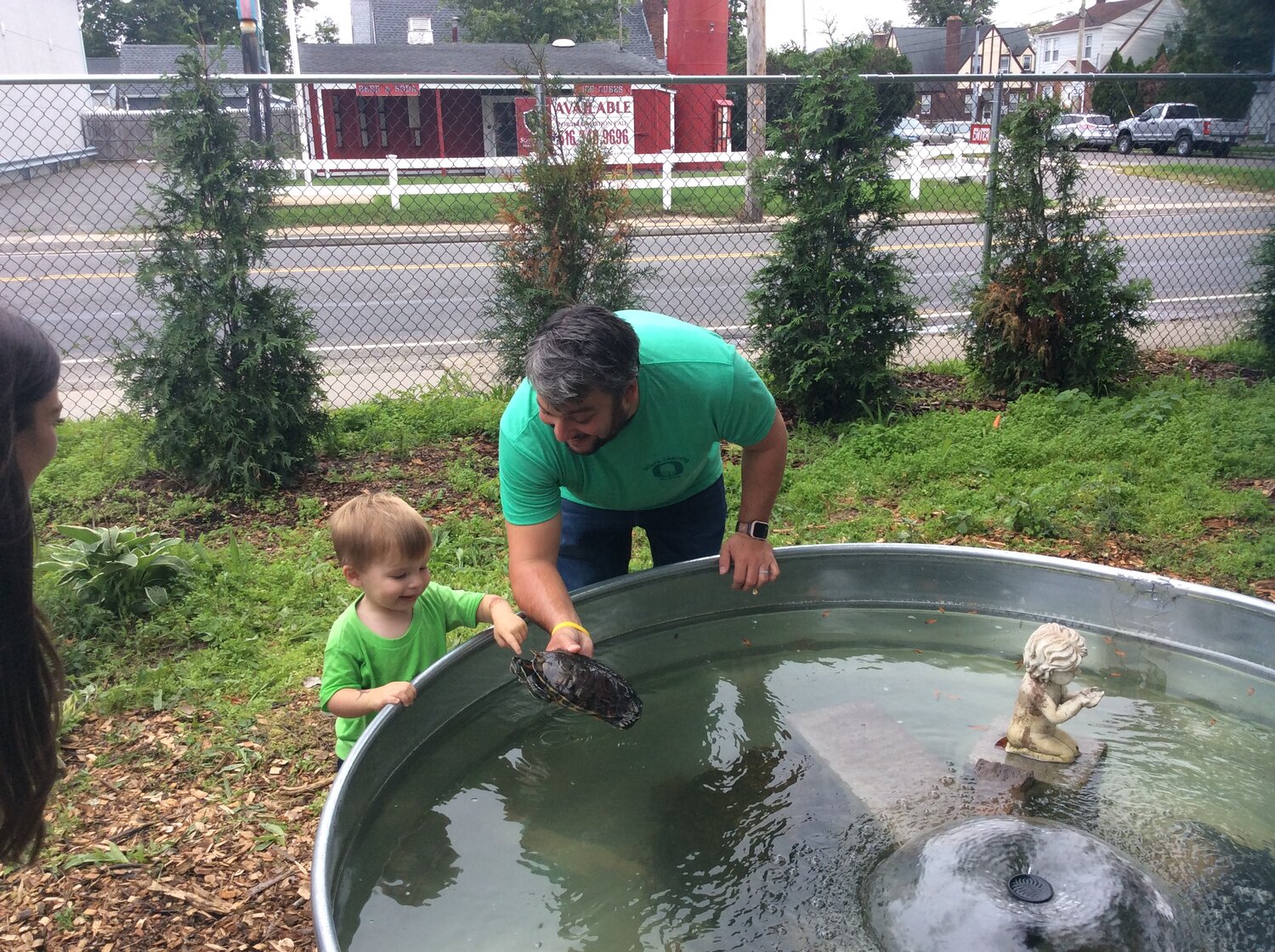The future is greener for Oceanside students
School district opens new outdoor research center
The Oceanside School District cut the ribbon on its brand new Outdoor Research Center, called “ORCA,” in the arboretum on Oct. 6.
Since October 2020, students from Ocean-side High School Castleton, the district’s alternative high school, have worked with their teachers to create a unique outdoor learning center that sits adjacent to the district office parking lot. The community pitched in to get the center ready, with residents volunteering to help weed, plant and mulch. Oceanside Sanitation donated tree stumps.
“This has been a groundbreaking, remarkable moment for us,” Castleton Principal Franky Simmons said. “Our arboretum has not just received a facelift — it has gone through an ecological metamorphosis orchestrated by our young minds invested in a greener future.”
The district has had an arboretum for decades, but it required much-needed remodeling. Florence A. Smith, the principal of Oceanside School 2, originally donated the plot of land in 1984. The original arboretum was developed and cultivated by Geoffrey Fennimore, former Oceanside High School English teacher, board member and the school’s horticultural club advisor, and former vice principal Dom Maresca, with help from Tommy DeDominica of Dees Nursery.
“It was just kind of a great place to be outdoors,” Castleton science teacher James Scannell said. “Now with the help of the administration, the students and fellow staff, we’ve been able to convert it into a much more user-friendly place where the students can actually receive lessons outside as well as enjoy nature.”
ORCA was developed by the students of Castleton to be used by the entire district for outdoor engagement and authentic learning. Students built signs, picnic tables and a new shed, and they are creating a greenhouse.
Students in kindergarten to sixth grade will benefit from the outdoor classroom and be able to use various outdoor resources for outdoor lessons. Castleton students will prep the site before the younger students visit for their lessons. Castleton student council president Isabella Robateau helped create the center with other students and said she was inspired to build her own outdoor garden space.
“I learned a lot like how to do a lot of things, and I hope that I can make my own garden beds now that I know how to do these things,” she said. “The whole idea behind this is very cool. The little kids who come here can learn and have a different type of classroom. It was a very fun experience.”
Outdoor resources include a river stream table, where students will learn about erosion. The space also has tanks that will hold koi, crayfish and turtles. The new research center also features a large-screen Smart TV for learning and Wi-Fi.
“It started as a big project for the kids to do, and it turned into something where the kids can come and get out of the classroom, see everything with their own eyes, touch with their own hands, and look at what’s going on in nature,” technology teacher John LaCascia said. “They’re going to be able to come out here and learn about the different natural sciences and what goes on in the natural world and the environment. It’s going to have a lot of lesson material.”
Castleton students will continue to improve the ORCA, building bird and bat houses, a pollinator lawn for bees and butterflies, and many other additions.
“We have plans to grow as time goes on,” Scannell said. “We’ll add more garden beds, more trees. We don’t want to set it up and forget about it.”
Students volunteered to spend many days constructing the ORCA, even volunteering to work on cold winter days and light rainy days as well, but were never discouraged.
“I think it’s amazing how some students volunteered, and it taught good skills in communication and how to push harder,” Castleton senior Angelina Fragoso said. “Instead of going home, we went right to work with Scannell. We got the experience as students to build an environment that can be calming and even help with mental health as well.”
The next phase of the ORCA will be to expand to include seventh through 12th-grade lessons. Although Castleton’s seniors who worked on the ORCA won’t receive their classroom lessons in the arboretum, the students loved the experience of creating a space that will be used by other students for years to come.
“The main reason why I volunteered was because there aren’t always times to get opportunities in life like this,” Fragoso said. “I think it’s good to spend your time on things that are fun because you get a once-in-a-lifetime opportunity for stuff like this.”

 66.0°,
Shallow Fog
66.0°,
Shallow Fog 





